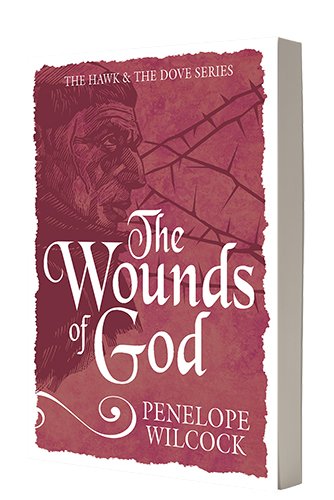You may recall that I review a book called The Traitor’s Heir. You may  not. It’s here if you’re interested.
not. It’s here if you’re interested.
I commented in that review that I looked forward to finishing the series, as The Traitor’s Heir was the first book of a trilogy. Further, in knowing that she was writing a trilogy, author Anna Thayer did not feel a compulsion to wrap up any loose ends in concluding the first book. It just left you hanging…
And so I waited patiently for books two and three. These are titled The  King’s Hand and The Broken Blade, respectively. Worth noting is that these books absolutely depend on each other. Think “trilogy” like Lord of the Rings, not Star Wars. You can catch up if you just jump into The Empire Strikes Back, but you’re dead lost if you start off on The Two Towers.
King’s Hand and The Broken Blade, respectively. Worth noting is that these books absolutely depend on each other. Think “trilogy” like Lord of the Rings, not Star Wars. You can catch up if you just jump into The Empire Strikes Back, but you’re dead lost if you start off on The Two Towers.
L ikewise here, don’t start on The King’s Hand unless you want to take a fantasy series and make it a mystery as well. I will address the collection and not each volume. Why? Because if you enjoy the first, you’ll want to read the second, then the third.
ikewise here, don’t start on The King’s Hand unless you want to take a fantasy series and make it a mystery as well. I will address the collection and not each volume. Why? Because if you enjoy the first, you’ll want to read the second, then the third.
First, a recap: our hero is Eamon Goodman of the River Realm. It is a place where there is magic and wonder, worthy of being created by someone who is a scholar of Tolkien and Lewis. The River Realm sees people with mystical powers and a ruler who fights against rebels out to see him fall.
The first book established who the good guys and bad guys are, and gave us the convincing picture of Eamon Goodman as a conflicted individual. He is sworn to the King but works for the Master—and that willingly!
The second book begins to show the consequences of divided loyalties and playing both ends against the middle. The third finalizes the situation, showing the character of the King, the results for Eamon and the Master, and who finds true love in it all.
Overall, the plot is not overly complicated. Thayer has given it enough twists that you cannot help but wonder if it will work out properly, but you know in the back of your mind it has to! There is never really a point that you believe any individual is safe from death, and figuring which batches of true love will turn out is not a simple task.
Further, the characters are multi-dimensional. While the bad guys are clearly the bad guys, there is more to them than just “evil for fun.” You don’t root for them, but you do see their perspective. I just don’t like them. They are bad guys, after all.
The good guys are good but flawed, very much like ordinary folks caught in the midst of crisis. Their plans are not perfect, the results not always as desired. It’s a world where good wins out over evil, but not without cost.
All in all, a great batch of reads. Thayer explains her world well and makes you glad to visit it. I gladly recommend the entire Knight of Eldaran series.
 series, and introduces us to our main
characters. We are introduced to the fourteenth-century world of the monastery
and Father Peregrine. It’s a good read, and easily digested as a novel. One then
comes back, though, and sees the beauty of the story of grace built in.
series, and introduces us to our main
characters. We are introduced to the fourteenth-century world of the monastery
and Father Peregrine. It’s a good read, and easily digested as a novel. One then
comes back, though, and sees the beauty of the story of grace built in.



